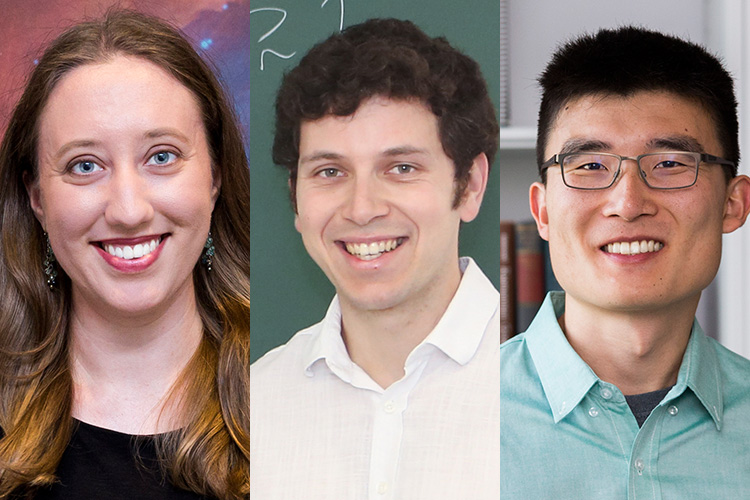Young planet hunters receive Pegasi b fellowships
Two incoming fellows and one departing Ph.D. will explore the diversity of exoplanets discovered since 1995

February 1, 2018
Jason Wang will earn a Ph.D. in astrophysics in May from UC Berkeley and head off to Caltech to study extrasolar planets, while two other new Ph.D.s will settle in Berkeley this summer to pursue their own exoplanet studies, all supported by a unique fellowship designed to boost understanding of planetary systems other than our own.
The three are among eight new 51 Pegasi b fellows announced this week, named after the first planet discovered outside our solar system, in 1995. Sponsored by the Heising-Simons Foundation, the fellowships provide up to $375,000 over three years “to pursue innovative independent research ideas, take risks and tackle challenging questions that will accelerate the field” of planetary astronomy, according to the foundation’s announcement.
The fellowships were inaugurated last year, when two UC Berkeley postdocs — one leaving, the other arriving — were among the four recipients.
The new cohort includes Wang, who will finish up his Ph.D. this spring and start a postdoctoral fellowship with Caltech astrophysicist Dimitri Mawet. Wang will focus on capturing images of young Jupiter-like planets to learn about their formation, and improving data processing to discover new worlds. As a graduate student, he worked with Berkeley astronomy professor James Graham on data from the Gemini Planet Imager, an instrument on the Gemini South telescope in Chile, and at Caltech will work on the Keck Planet Imager and Characterizer, an instrument that will be mounted on the Keck Telescopes in Hawaii and is supported by the Heising-Simons Foundation.
Other new fellows are Marta Bryan, a Ph.D. candidate in astrophysics at Caltech, and Sivan Ginzburg, a Ph.D. candidate in physics at Hebrew University in Jerusalem, Israel, who will arrive by fall to work with UC Berkeley astronomers Courtney Dressing and Eugene Chiang, respectively.
Bryan, who will graduate in May, will investigate how outer gas-giant planets affect the structure and formation of systems with smaller planets closer in to their host stars, including rocky planets analogous to Earth and ice giants similar to Neptune.
Ginzburg also graduates in May before coming to Berkeley, where he will focus on modeling the interaction between young planets, their parent stars and their birth environments to reveal clues about exoplanet origins.
The 51 Pegasi b Fellowship Program was launched in 2017 to support talented early career scientists in the nascent field of exoplanet astronomy, where UC Berkeley has been a leader since 1995.